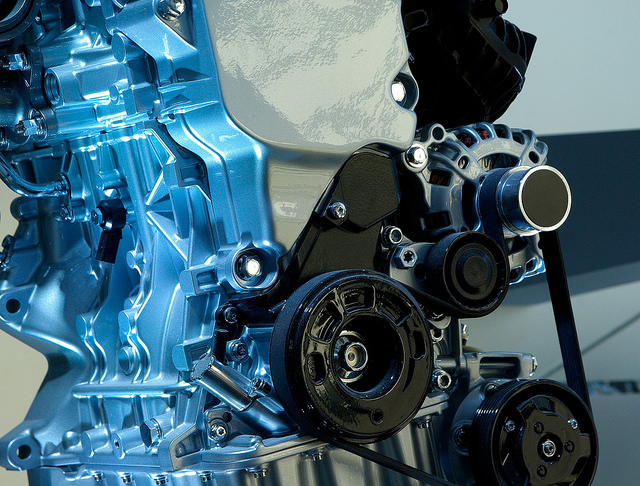Posted on 5/10/2016

Not everyone can or should be a full-time mechanic, but there’s always room to learn more about your car’s engine. The more you know, the better chance you will have at keeping your car’s parts and engine in good running condition. This week, we’ll be focusing on a small but important part of your car—the timing belt. This unassuming part of the engine is key to ensuring that your car runs smoothly and at its optimal efficiency. Read on to learn more. What Timing Belts Do Belts and hoses are some of the most inexpensive parts of an engine. However, if they fail or break, they can lead to some relatively serious engine damage and costly repairs. In particular, your car’s timing belt is a major part of the engine because of its function. What it does is synchronizes and coordinates the rotation of parts like the crankshaft and camshaft. This allows the engine valves to open and close at the correct time during the engin ... read more
Posted on 3/10/2011

Every vehicle that has a timing belt will require a timing belt replacement at some point during its life. Knowing the signs of a failing belt can help drivers ensure their vehicle receives the maintenance it needs before serious issues arise. Five signs indicating the need for a timing belt replacement include: 1) Fraying or wear on the belt itself. Once the belt starts to crack and split, it is time to have it replaced. 2) Missing teeth. On older vehicles, timing chains rather than belts were used and if any of the metal teeth are missing or broken, a new belt or chain should be installed. 3) Poor fuel economy. A timing belt regulates the timing of engine gears, and if it is not doing its job correctly, will result in odd fuel use patterns. 4) A lack of power. If stepping on the accelerator results in intermittent or low power, a frayed timing belt may be the cause. 5) Mileage. Most manufacturers recommend a ti ... read more
Posted on 1/13/2011
Your engine is like a finely choreographed dance. All the parts have to work together. If the timing is off at the ballet, dancers crash into each other and fall down. If the timing is off in your engine, it may not run at all. One of the most intricate dances in your engine, has to do with the combustion cycle. Your sedan engine has cylinders in which a piston travels up and down. At the top of the cylinders are valves open to bring in the air and fuel. And there are valves that open to let out the exhaust after the fuel has been burned. It's critical that the values be timed to open and close at precisely the right time in the combustion cycle, or the engine will run poorly or not at all. The timing belt is responsible for rotating the shafts that control the valves. It's vital and precision work. Timing belts are made of very tough flexible material. They can last a long time, but they eventually wear out and can break. The consequences can be disastrous. In some engines, the valv ... read more